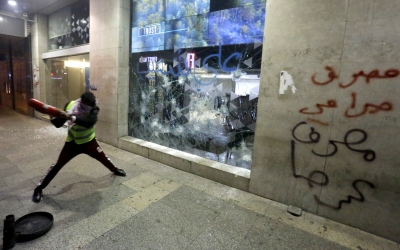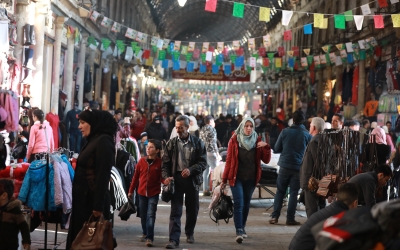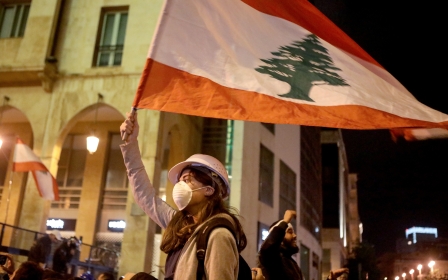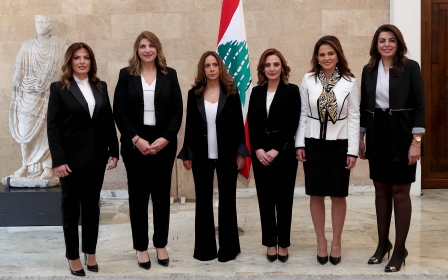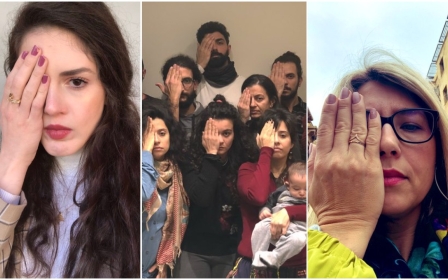As crisis bites, Lebanon to seek IMF technical assistance on debt restructuring
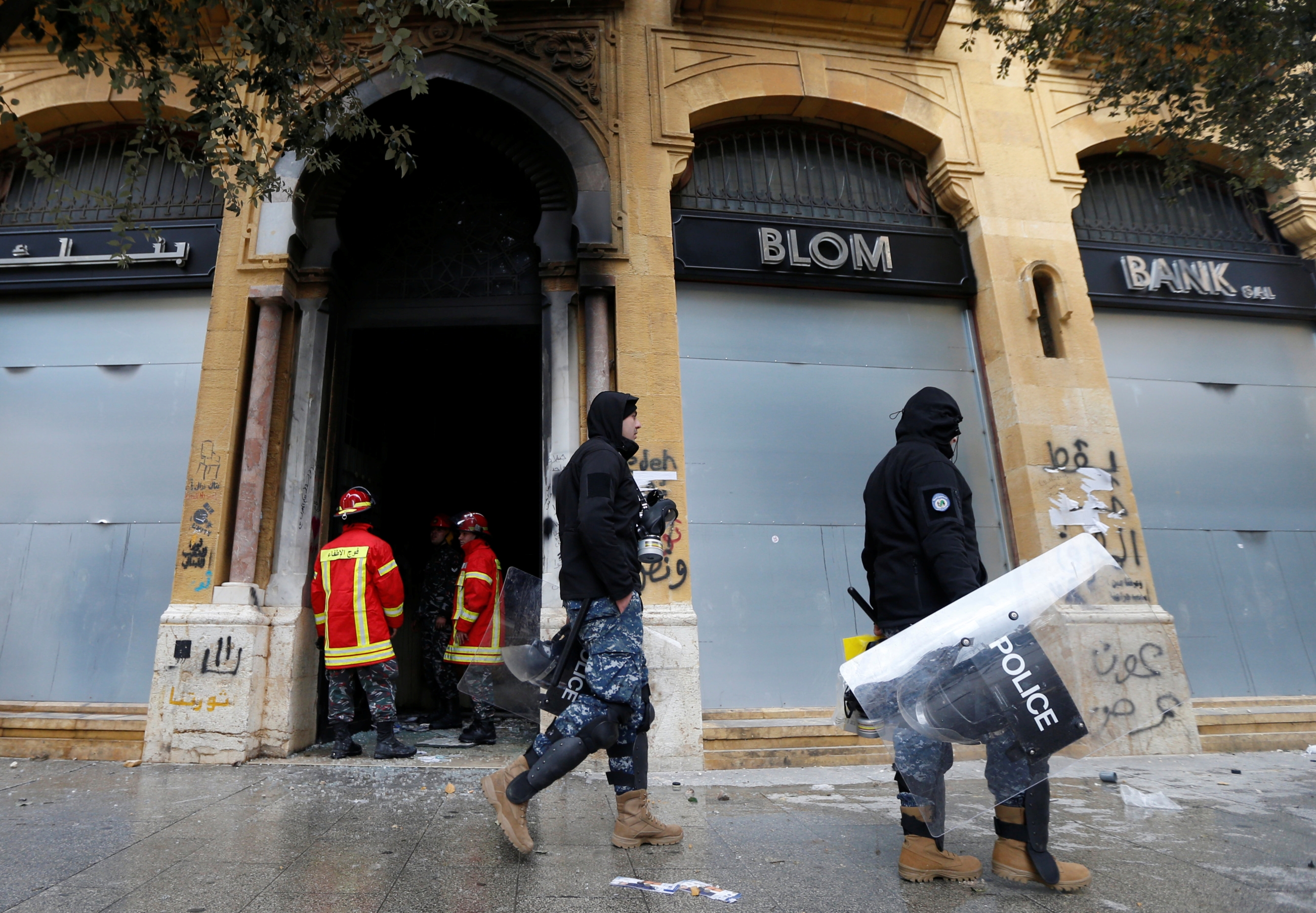
Cash-strapped Lebanon is set to request technical assistance from the International Monetary Fund (IMF) on Thursday, according to a senior political source.
The source told Reuters on Wednesday that the formal request will be sent “in the coming hours” for advice on how to help stabilise the country’s nose-diving economy, and potentially restructure its debt.
Lebanon has a $1.2bn Eurobond maturing on 9 March and is apparently seeking advice on whether to pay it.
Local newspaper Annahar quoted Nabih Berri, speaker of parliament, as saying: “We need to send a message to the world, perhaps to the Americans in particular - given that they’re the most influential and active factor in the International Monetary Fund - stipulating that Lebanon needs the fund’s technical help for a rescue plan.”
Berri made it clear, though, that Lebanon would not seek an IMF rescue package as Argentina did in 2018 because the Lebanese public would not accept the conditions that the fund would likely impose.
New MEE newsletter: Jerusalem Dispatch
Sign up to get the latest insights and analysis on Israel-Palestine, alongside Turkey Unpacked and other MEE newsletters
Politicians have said that such a package from the IMF would require Lebanon to float its pegged currency and raise taxes.
Mohamad Faour, postdoctoral research fellow in banking and finance at University College Dublin, told Middle East Eye that IMF technical assistance would be “narrow” and likely focus on the banking crisis and debt management, rather than push for overarching policy changes.
“Right now, it's all very vague because the nature of the technical assistance depends on the agreed-upon scope, which is still a grey area,” said Faour.
“What they might do is help the government in drafting an economic and fiscal programme that would be deemed credible by creditors.”
Lebanon currently has one of the highest debt-to-GDP ratios in the world at 150 percent.
Politicians are divided over repaying a total of about $6bn of Eurobond principal and coupon payments due this year.
Some think the government should engage with bondholders to restructure its debt and save what is left of its reserves to support imports of essential goods.
Others, including Prime Minister Hassan Diab, argue that the country should pay and preserve its reputation in the international market. Lebanon has never defaulted on its debt.
'Courtesy meeting'
Reports of Lebanon reaching out to the IMF for financial support have surfaced in recent months, as nationwide protests which began on 17 October continue.
Just a day after Diab formed a cabinet last month, senior MP Alain Aoun of the Free Patriotic Movement told Reuters that IMF support was an option depending on the conditions.
Finance Minister Ghazi Wazni held a meeting with the IMF a few days later, but the talks were quickly dismissed as a “courtesy meeting”.
Former Prime Minister Saad Hariri, who resigned in late October, had called for close cooperation with the IMF and World Bank in the days leading to the formation of Diab’s cabinet.
The IMF thus far has only issued a series of recommendations following consultations with Lebanon that ended in September last year and were published the following month.
In a copy obtained by MEE, their recommendations included raising Lebanon’s value-added tax from 11 percent to 15-20 percent, end subsidies to the notoriously inefficient and ineffective Electricité du Liban, and increase the price of gasoline.
Faour said that should Lebanon seek support from the IMF, there might be some changes considering how much worse the economy has deteriorated since, with dollar shortages forcing the devaluation of the local currency and price hikes.
“That would be dependent on the competence of the government’s team that would be working with the IMF on drafting an economic 'rescue' plan,” he said.
Three-staged recovery plan
Diab's government received a vote of confidence in parliament on Tuesday despite boycotts and protestors’ attempts to block lawmakers from arriving.
The demonstrators are demanding the complete removal of the country’s ruling elite and an end to corruption.
As the session opened, Diab said his government would draft an “emergency plan before the end of the month to address looming repayments and challenges facing the country”.
The prime minister's policy statement, which was approved last week, addresses Lebanon’s laundry list of economic and structural problems and says that they will be resolved in a three-staged recovery plan spanning up to three years.
The plan includes addressing issues with Electricité du Liban, which has notoriously failed to provide electricity to Lebanese homes without daily power cuts.
While the promises somewhat fall in line with some of the IMF’s recommendations last October, they also are in tandem with conditions for Lebanon to unlock a pledged $11.1bn in soft loans and grants by international donors at the CEDRE conference in Paris in April 2018.
The loans would be used for development projects aimed at rehabilitating Lebanon’s ailing infrastructure and create jobs in the process.
'Painful' measures
However, the consequences of the economic crisis on ordinary Lebanese people have been severe.
In addition to hiking prices, currency devaluation, and bank withdrawal limits as low as $100 per week, Lebanon has struggled to import basic necessities, including medicine, wheat and fuel.
Doctors and Human Rights Watch have warned that as a result, hospitals may soon be unable to provide life-saving medicine and surgeries.
In December, the government urged numerous countries to provide import credit to help alleviate the issue, but to no avail.
Informal fundraisers and charity drives for medical costs, food and housing have become more common.
However, some of the proposed reforms by the Diab government - which Faour says are generally in line with IMF recommendations - could be detrimental to ordinary people, according to Faour.
“The IMF is anyway very predictable when it comes to their policy recommendations,” he told MEE.
“It's almost always a combination of austerity, privatizations, revisiting the currency regime.”
Diab’s policy statement hinted at austerity measures, saying that some of the measures needed to revive the economy would be “painful”, while promising to try to mitigate adverse effects on families with “limited incomes”.
He also explicitly promoted eventual privatization through public-private partnerships.
Despite high government spending, Faour told MEE, “social spending and public investment is... almost non-existent by the government”.
The consequences of these policies are “very likely to be adverse” for ordinary people.
Middle East Eye delivers independent and unrivalled coverage and analysis of the Middle East, North Africa and beyond. To learn more about republishing this content and the associated fees, please fill out this form. More about MEE can be found here.


